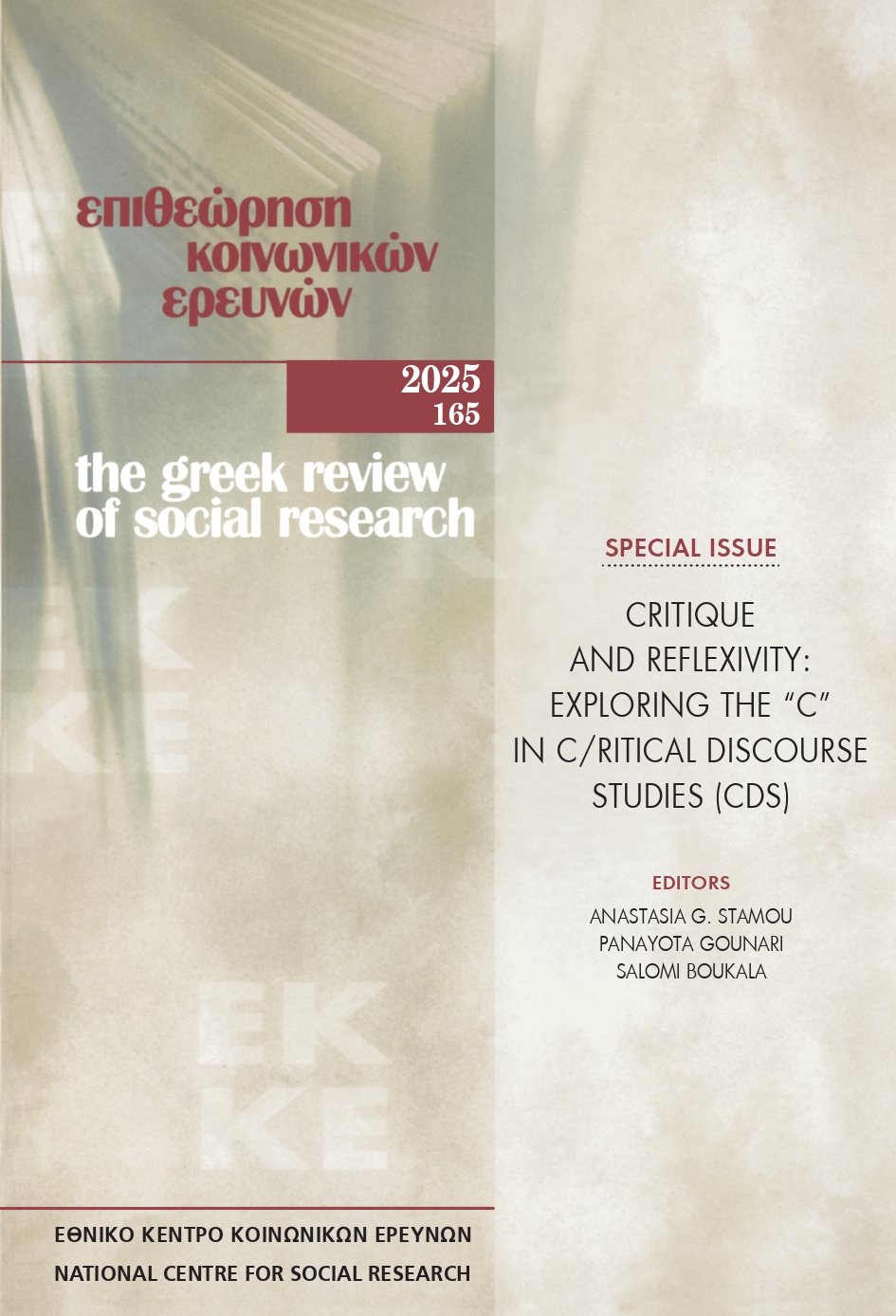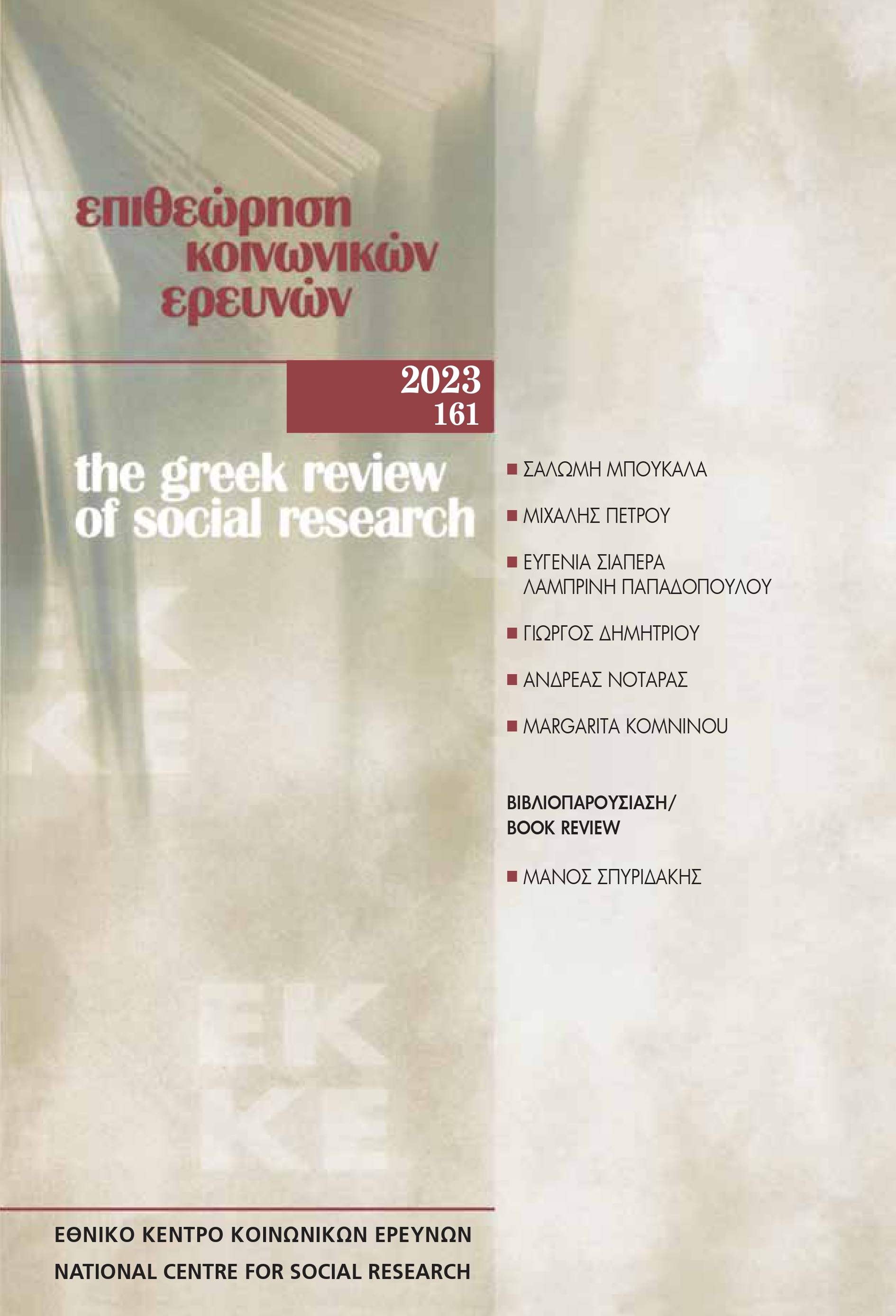Critique and Reflexivity: Exploring the “C” in C/ritical Discourse Studies (CDS) Introduction: The Editors’ View
Abstract
Critical Discourse Studies (CDS) stands apart from “non-critical” approaches by not only analyzing the role of language in society, but by examining how and why it is entangled with power relations and ideology. Yet, what constitutes the “critical” in CDS often remains conceptually ambiguous. This Special Issue addresses these ambiguities, focusing on ideology, power, critique, and reflexivity. Bringing together contributions primarily from Greek scholars, it aims to foster reflexive, intertextual dialogue and to advance the academic recognition and institutional presence of CDS in Greece, while also engaging broader questions about its evolving meaning and role in critical scholarship.
Article Details
- How to Cite
-
Stamou, A. G., Gounari, P., & Boukala, S. (2025). Critique and Reflexivity: Exploring the “C” in C/ritical Discourse Studies (CDS) Introduction: The Editors’ View. The Greek Review of Social Research, 165, 3–26. https://doi.org/10.12681/grsr.42197
- Section
- Articles

This work is licensed under a Creative Commons Attribution-NonCommercial 4.0 International License.
Authors who publish with this journal agree to the following terms:
- Authors retain copyright and grant the journal right of first publication with the work simultaneously licensed under a Creative Commons Attribution Non-Commercial License that allows others to share the work with an acknowledgement of the work's authorship and initial publication in this journal.
- Authors are able to enter into separate, additional contractual arrangements for the non-exclusive distribution of the journal's published version of the work (e.g. post it to an institutional repository or publish it in a book), with an acknowledgement of its initial publication in this journal.
- Authors are permitted and encouraged to post their work online (preferably in institutional repositories or on their website) prior to and during the submission process, as it can lead to productive exchanges, as well as earlier and greater citation of published work (See The Effect of Open Access).




